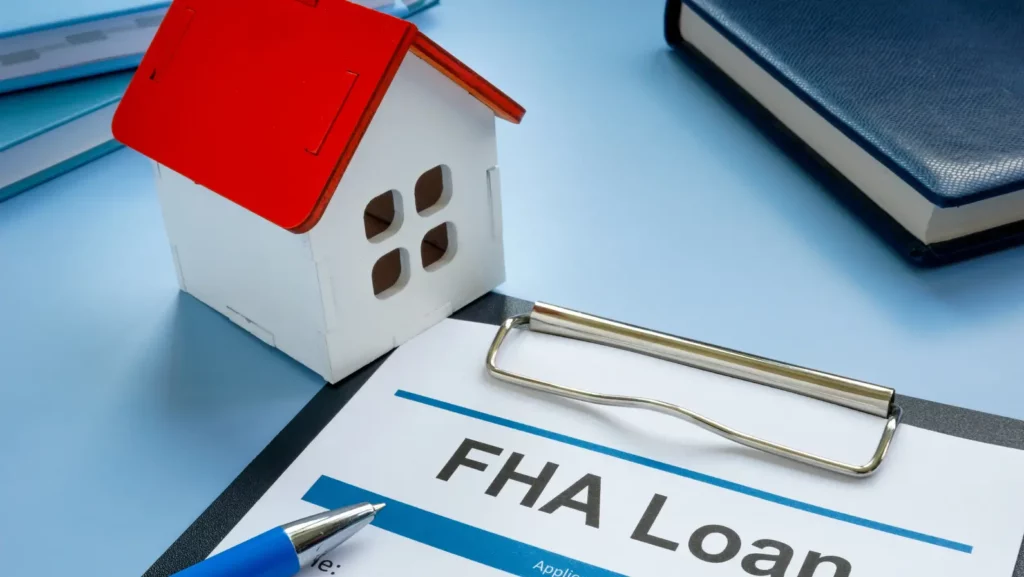For many aspiring homeowners, FHA loans are an accessible and affordable pathway to achieving their dream of homeownership. Designed for borrowers with lower credit scores and limited savings, these loans provide a lifeline for those who may not qualify for conventional mortgages. By offering lower down payments, flexible credit requirements, and competitive interest rates, FHA loans open the door to homeownership for millions. This comprehensive guide will help you understand how FHA loans work, their requirements, and how to apply—ensuring you can navigate the process with ease.
What Is an FHA Loan?

An FHA loan is a government-backed mortgage insured by the Federal Housing Administration (FHA). These loans aim to make homeownership more accessible by reducing barriers for individuals who may face challenges qualifying for conventional loans. With features like lower down payment requirements and more lenient credit score thresholds, FHA loans provide opportunities for a wide range of borrowers. The government’s insurance guarantees lenders will recover their investment if a borrower defaults, encouraging them to offer favorable terms.
How Does an FHA Loan Work?
FHA loans operate by ensuring lenders against borrower defaults, enabling them to extend financing to higher-risk applicants. To secure an FHA loan, borrowers must meet specific criteria and agree to pay mortgage insurance premiums (MIP) to fund the FHA’s insurance pool.
Key features of FHA loans:
- Restricted to primary residences.
- Require upfront MIP (1.75% of the loan amount) and annual premiums.
- Available in 15- and 30-year terms, often with fixed interest rates.
- Offer streamlined refinancing options for existing FHA borrowers.
Who Can Qualify for an FHA Mortgage?

FHA loans are specifically tailored for borrowers who need flexibility in credit and financial requirements.
Ideal candidates include:
- First-time homebuyers.
- Individuals rebuilding their credit.
- Borrowers with limited funds for a down payment.
To qualify, applicants must:
- Have a credit score of at least 500 (580 for a 3.5% down payment).
- Show a debt-to-income (DTI) ratio of 43% or lower.
- Provide consistent proof of income and employment history.
- Plan to use the loan for a primary residence.
Comparing FHA Loans vs. Conventional Loans
FHA loans and conventional loans cater to different types of borrowers, offering unique benefits and limitations. Here’s a detailed comparison to help you decide which is right for you:
Down Payment Requirements
FHA loans require a down payment as low as 3.5% for borrowers with a credit score of 580 or higher, making them accessible to those with limited savings. Conventional loans typically require a higher down payment, usually ranging from 5% to 20%, depending on the lender and borrower’s financial profile.
Credit Score Requirements

FHA loans are more lenient with credit score requirements. Borrowers with scores as low as 500 can qualify (with a 10% down payment), while those with scores of 580+ can secure the lowest down payment option. Conventional loans, on the other hand, usually require a minimum credit score of 620, which may make them challenging for borrowers with less-than-perfect credit.
Mortgage Insurance
FHA loans require both an upfront mortgage insurance premium (MIP) and an annual MIP, which is divided into monthly payments. The annual MIP is required for the life of the loan unless the borrower refinances into a conventional mortgage. Conventional loans require private mortgage insurance (PMI) only if the borrower’s down payment is less than 20%, and PMI can be removed once the borrower’s equity reaches 20%.
Loan Limits
FHA loans have set limits based on the county and local housing market conditions. For most counties, the 2024 limit is $472,030, with higher-cost areas allowing limits up to $1,089,300. Conventional loans also have limits, but jumbo loans are available for borrowers needing financing beyond standard conforming limits.
Flexibility and Accessibility
FHA loans are ideal for first-time homebuyers and those with lower credit scores or limited savings. Conventional loans are more suited to borrowers with higher credit scores and stable financial profiles who want to avoid the long-term cost of mortgage insurance.
| Feature | FHA Loans | Conventional Loans |
| Down Payment | 3.5% (580+ credit score) | 5%-20% |
| Credit Score | 500 minimum | 620 minimum |
| Mortgage Insurance | Required for life of the loan | Required if <20% down; removable at 20% equity |
| Loan Limits | Set by FHA and county | Set by lender; jumbo loans available |
| Ideal For | Low credit scores, first-time buyers | High credit scores, avoiding PMI |
What Are the FHA Loan Requirements?
FHA loans come with specific criteria to ensure borrowers can handle repayment while protecting lenders. Understanding these requirements is essential for a smooth application process and successful loan approval.
Credit Score for FHA Loans
Borrowers with a credit score of 580 or higher qualify for an FHA loan with a 3.5% down payment, making it one of the most accessible options for individuals with moderate credit histories.
Applicants with credit scores between 500-579 can still qualify, but they must provide a 10% down payment. These higher requirements reflect the increased risk to lenders.
Debt-to-Income Ratio
The standard debt-to-income (DTI) ratio limit is 43%, meaning your monthly debt payments, including the FHA mortgage, should not exceed 43% of your gross income.
Exceptions to this limit may apply if the borrower has strong compensating factors, such as significant cash reserves, a history of on-time payments, or a high income relative to expenses.
Down Payment & Gift Funds
Down payments for FHA loans start at just 3.5%, significantly lower than conventional loans.
Gift funds from family members, employers, or charitable organizations are allowed to cover part or all of the down payment. Proper documentation of these funds is required to ensure they meet FHA guidelines.
FHA Appraisal
Every property financed with an FHA loan must undergo an FHA-approved appraisal. This appraisal ensures the home meets specific safety, structural, and value standards.
If the property fails the appraisal, necessary repairs must be completed before the loan is finalized.
Mortgage Insurance
Borrowers must pay an upfront mortgage insurance premium (MIP) equal to 1.75% of the loan amount. This fee is due at closing.
Annual MIP is also required, ranging from 0.45% to 1.05% of the loan balance. This amount is divided into monthly payments and added to the mortgage bill.
What Are the Types of FHA Loans?
FHA loans cater to a variety of borrower needs, offering several specialized options:
FHA Purchase Loan
Ideal for first-time homebuyers or those with lower credit scores, this loan provides an affordable entry point to homeownership with low down payment requirements.
FHA Refinance Loan
This option allows borrowers to refinance their existing mortgage for better terms, such as lower interest rates or monthly payments.
FHA Streamline Refinance Loan
A simplified refinancing process for current FHA loan holders, requiring minimal documentation and no home appraisal in most cases.
FHA Cash-Out Refinance Loan
Homeowners can tap into their home’s equity for cash, which can be used for expenses such as renovations, education, or debt consolidation.
FHA 203(k) Renovation Loan
Combines the cost of purchasing and renovating a home into a single mortgage, ideal for buyers looking to update or repair their property.
Home Equity Conversion Mortgage (HECM) Loan
This reverse mortgage program is available for seniors aged 62 and older, allowing them to convert their home equity into income while retaining ownership of the home.
FHA Energy Efficient Mortgage Loan
Enables borrowers to finance energy-saving upgrades, such as solar panels or new insulation, alongside their mortgage.
Good Neighbor Next Door
Offers substantial discounts on homes for teachers, firefighters, law enforcement officers, and emergency medical technicians in designated revitalization areas.
How to Apply for an FHA Loan
Securing an FHA loan involves several clear steps:
- Determine Your Eligibility
Evaluate your credit score, debt-to-income ratio, and overall financial health to ensure you meet FHA requirements. This step helps identify whether you’re ready to apply and highlights any areas for improvement.
- Find an FHA-Approved Lender
Research and choose a reputable lender who is experienced with FHA loans. An FHA-approved lender is crucial for navigating the process efficiently and ensuring compliance with FHA guidelines.
- Get Pre-Approved
Submit financial documents such as tax returns, pay stubs, bank statements, and proof of employment to the lender. Pre-approval determines your borrowing capacity and shows sellers you’re a serious buyer.
- Search for a Home
Look for a property that meets FHA standards. FHA appraisals will confirm the home’s safety, structural integrity, and market value.
- Submit Your Application
Complete the FHA loan application with your chosen lender. Provide any additional documents they request, such as updated financial information or proof of assets.
- Close on Your Loan
Review and sign all necessary documents during the closing process. At this stage, you’ll pay any upfront costs, such as the mortgage insurance premium, and officially finalize your mortgage.
What Is the Most Common FHA Loan?
The FHA 203(b) loan is the most widely used option, designed for purchasing or refinancing primary residences. With flexible credit requirements and low down payments, it’s particularly popular among first-time buyers.
What Are FHA Loan Limits?
FHA loan limits are determined annually based on local housing market trends and vary by county. These limits ensure that FHA loans remain accessible to borrowers in diverse real estate markets. For most counties, the baseline loan limit is $472,030 as of 2024. In expensive housing markets, however, loan limits can reach as high as $1,089,300, accommodating the increased cost of real estate. These tiered limits provide flexibility while ensuring borrowers can find homes within their price range. By aligning loan limits with regional housing costs, the FHA supports a wide array of buyers in achieving homeownership.
Can I Apply for an FHA Loan With a Bad Credit Score?

Yes! You can apply for an FHA loan with bad credit score. FHA loans are one of the most accessible options for borrowers with lower credit scores. Applicants with scores as low as 500 can qualify, although they must provide a 10% down payment. Those with scores of 580 or higher enjoy reduced down payment requirements and may secure better terms.
Looking to Buy Your First Home in Houston?
If you’re looking to purchase your first Houston home, partner with Apex Realtors today. Apex Realtors specializes in guiding first-time buyers through the FHA loan process. Located at 5444 Westheimer Rd. Suite 1620, Houston, TX 77056; our team of experts is committed to helping you achieve your homeownership goals. Are you exploring FHA options or looking for personalized real estate services? Apex Realtors is here to help. Visit our website to get started and make your homeownership dreams a reality today!

